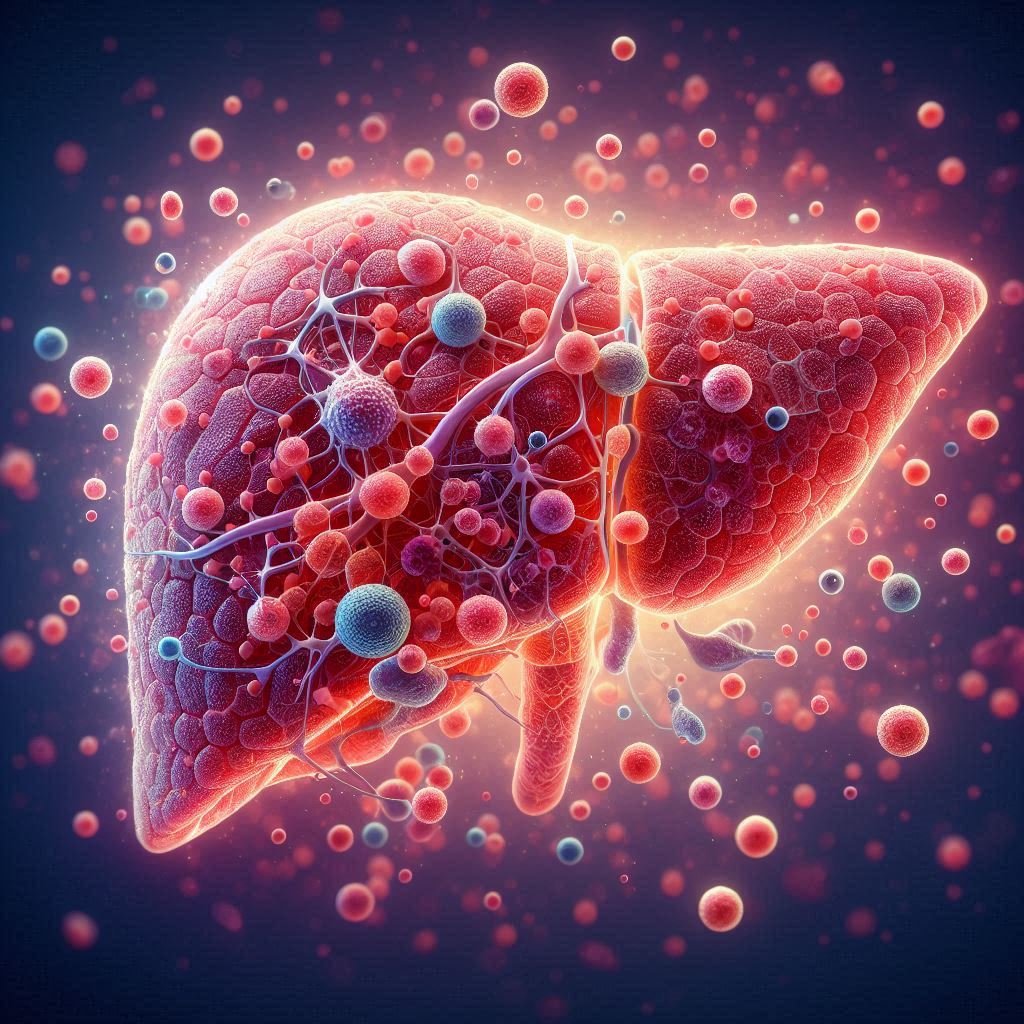
The liver is the largest internal organ in the body. It is also known as primary liver cancer or hepatoma and hepatocellular carcinoma is a cancer arising from the liver. Hemangioma (he-man-ge-O-muh) is the most common type of benign liver tumor. It starts in blood vessels and Hepatic adenomas are benign tumors that start from the main type of liver cells (hepatocytes). Women have a much higher chance of having one of these tumors if they take birth control pills, although this is rare. Stopping the pills can cause the tumor to shrink. Hepatic adenomascancer begins in many spots throughout the liver and is not confined to a single tumor. This is most often seen in people with liver cirrhosis and is the most common pattern seen in the United States.
Hepatic tumors also called Liver cancer. Hepatic tumors is are tumors or growths on or in the liver. There are many forms of liver tumors premary is Malignant. Malignant, primary liver cancer is hepatocellular carcinoma (also named hepatoma, which is a misnomer). These growths can be benign or malignant (cancerous). They may be discovered on medical imaging (even for a different reason than the cancer itself). Most of the time when cancer is found in the liver, it did not start there but spread to the liver from a cancer that began somewhere else in the body. These tumors are named after the place where they began (primary site) and are further described as metastatic. Symptoms can include a lump or pain on the right side of your abdomen and yellowing of the skin. However, you may not have symptoms and the cancer may not be found until it is advanced.
Some researchers believe that cancer starts with damage to DNA the material that contains the instructions for every chemical process in your body, including the rate of cellular growth. DNA damage causes changes in these instructions. Liver cancer also occurs as metastatic cancer, which happens when tumors from other parts of the body spread (metastasize) to the liver. In the liver cancer some cells begin to grow abnormally. One result is that cells may begin to grow out of control and eventually form a tumor a mass of malignant cells. In the United States, most cancer found in the liver spread there after originating elsewhere. Rather than being called liver cancer, this type of cancer in the liver is named after the organ in which it began such as metastatic colon cancer in cancer that starts in the colon and spreads to the liver.
Causes of liver Cancer
Hepatitis B virus (HBV) infection is the main causes of liver cancer. Liver cancer relates to (correlates with) the frequency of chronic hepatitis B virus infection. Studies in animals also have provided that hepatitis B virus can cause liver cancer. For example, liver cancer develops in other mammals that are naturally infected with hepatitis B virus-related viruses. Finally, by infecting transgenic mice with certain parts of the hepatitis B virus, scientists caused liver cancer to develop in mice that do not usually develop liver cancer.
Symptoms of liver cancerLiver cancer is very common larges countries in world wide. Generally is discovered at a very advanced stage of cancer disease for several reasons. In addition, patients from these regions actually have more aggressive liver cancer disease. live cancer tumor usually reaches an advanced stage and causes symptoms more rapidly. Abdominal pain is the most common symptom of liver cancer and usually signifies a very large tumor or widespread involvement of the liver and other symptom is weight loss. These symptoms are less common in individuals with liver cancer in the U.S.an additionally symptoms is ascites (abdominal fluid and swelling), jaundice (yellow color of the skin), or muscle wasting.
Treatment of liver cancer
The treatment of liver cancer is overall condition of the patient. First treatment if liver cancer is Chemotherapy. Chemotherapy is a powerful drugs to kill cancer cells. Chemotherapy is anot effective not some cases of liver cancer but type of chemotherapy is known as chemoembolization is an important part of treatment for HCC. chemoembolization causes many of the same side effects as other forms of chemotherapy, including abdominal pain, nausea and vomiting. Second treatment is surgery. Surgery is best treatment for localized resectable cancer is usually an operation known as surgical resection. In some cases, the area of the liver where the cancer is found can be completely removed. Alcohol injection has been shown to improve survival in people with small hepatocellular tumors. It may also be used to help reduce symptoms in cases of metastatic liver cancer. The most common side effect is leaking of alcohol onto the liver or into the abdominal cavity.




